The Best Gift to Our Faculty: Supporting Our Students
A letter from Suzanne M. Murphy, Vice President, Development & External Affairs
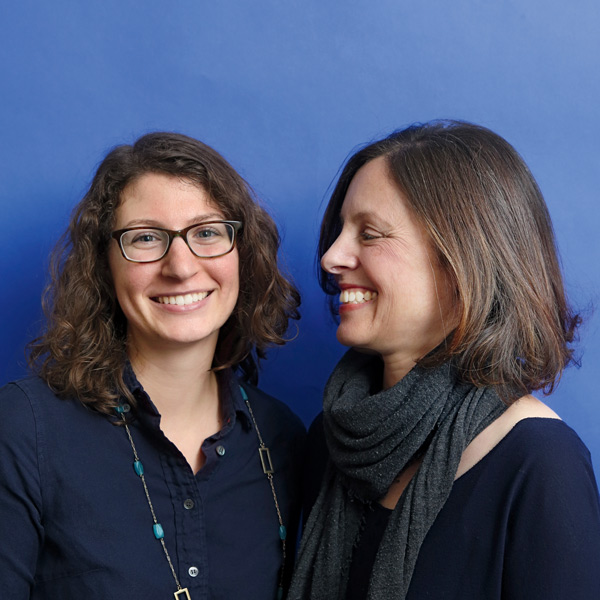
As our historic Campaign, Where the Future Comes First, concludes, we’re ramping up, not winding down. Our top priority — our only priority — is to create more scholarships to support our students. Through a dollar-for-dollar match enabled by a generous anonymous donor, we’re doubling a select number of $50,000 gifts to create endowed scholarship funds. Yet any scholarship gift has a twofold impact.
To Explain:
Teachers College’s supporters believe our work is a force for good in a complex and challenging world. Our renowned faculty drive that work by shaping new paradigms on teaching for diverse classrooms, education and psychosocial support for refugees, gun violence, health disparities that penalize low-income and minority communities, and more.
Yet our faculty rely, in turn, on collaboration with TC’s impassioned and dedicated students, who often arrive with powerful ideas formed on the front lines of education, health and psychology.
By funding our students, you exponentially increase the impact of our faculty’s work. But don’t take my word for it. Here’s what five faculty members say about their student colleagues:
Unquestioned Importance
Recently, a generous donor asked what our program most needed. I replied that nothing could help us more than supporting students. Students are not only why we teach but also integral to how we conduct research and take our ideas into the world.
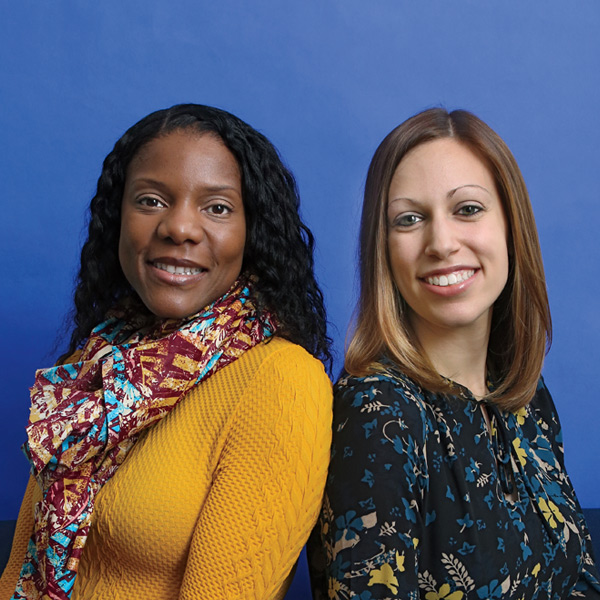
Some years ago, for example, TC students began teaching philosophy in local public schools, believing that adolescents would relate powerfully to questions posed by Plato, Du Bois, Arendt, Dewey and others. They were right.
Philosophy, which translates literally as “the love of wisdom,” urges listening before acting. Coming from remarkably diverse backgrounds, our TC students are extraordinary listeners. With their enthusiasm, creativity and openness to transformation, they teach us to listen, too.
Through TC’s dollar-for-dollar match, I have created the Lyle Louis Fellowship Endowed Fund for students pursuing a degree in Philosophy & Education. This gift honors two people who have helped me pursue a life of teaching, research, writing and exercising leadership. My father, Lyle Hansen, was a professor who later worked for the Ford Foundation. My upbringing in Nigeria and Pakistan helped shape my interest in a cosmopolitan outlook on the human condition. My wife’s father, Louis Fuchs, flew for the U.S. Naval Air Corps during World War II, became a geologist and discovered several new minerals from meteorites. He was a generous-minded and contemplative person who taught me about the values of peace.
I hope that, after reading these words, you, too, will act by supporting our remarkable students. In an often troubled and ambiguous world, their importance is one thing I never question. — David Hansen, The John L. & Sue Ann Weinberg Professor in Historical & Philosophical Foundations of Education
Invaluable Support
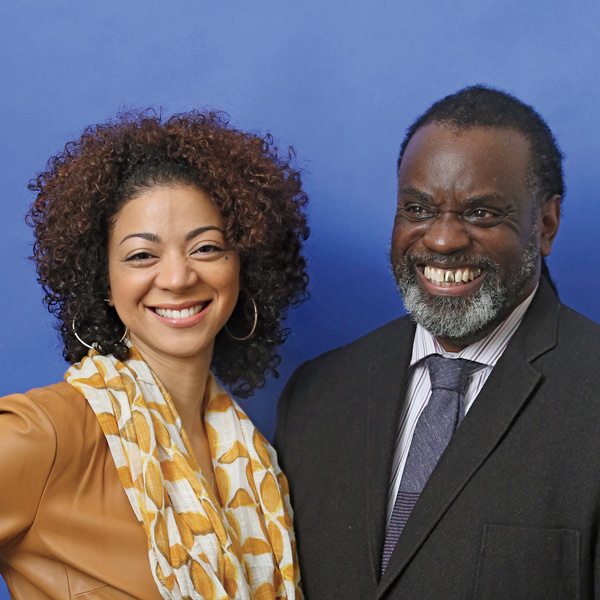
In Education Leadership, our students, who range from aspiring administrators to experienced leadership practitioners, bring real-world perspectives, strategies and field issues to our work.
“Without students to help me, I could not explore the broader race and class inequalities that prevent American schools from serving as a truly equalizing force.”— Sonya Douglass Horsford
Education Leadership Ph.D. candidate Phillip Smith, a former school administrator from the United Kingdom, is assisting me on a large-scale qualitative study exploring the politics of race and diversity associated with “leading while Black” in U.S. schools and districts. His work on Black male principals explores how race and gender identity inform leadership practice and sustainability — insights critical to increasing diversity among education institutions’ leadership.
Phillip is also a popular instructor, co-designing and teaching courses on leadership for social justice. Our students esteem him highly, as do I, so please support them. There’s so much more we can do together. — Sonya Douglass Horsford, Associate Professor of Education Leadership
Skilled Researchers and Explainers
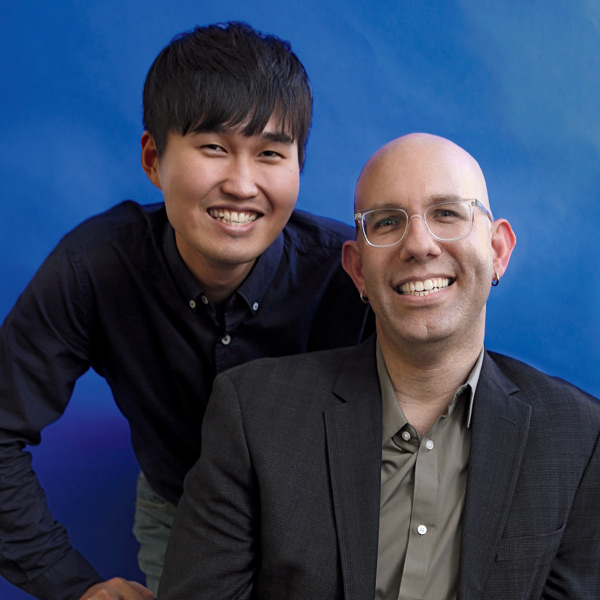
Measuring public opinion is crucial to policy research. It’s also a time-consuming enterprise that wouldn’t be possible without students like Chanwoong Baek, a second-year doctoral candidate in International & Comparative Education. Chanwoong is helping Professor Aaron Pallas and me create a new instrument to measure how the public perceives and explains the quality of education, health and psychology — information that predicts support for policies on issues such as teacher pay.
“Measuring public opinion is a crucial part of policy research. It’s also a vast, time-consuming enterprise that wouldn’t be possible without the help of students.” — Oren Pizmony-Levy
Chanwoong, a skilled researcher, has expanded our project’s scope. He’s also an excellent explainer who helps me teach “Introduction to Quantitative Analysis in Comparative Education.” His analysis of data from our 3,150 respondents will provide key talking points. We need more students like Chanwoong. — Oren Pizmony-Levy, Assistant Professor of International & Comparative Education
Covering Critical Ground
Students a detailed and attitudes are critical to my work, which includes reporting and analysis of people’s behaviors round food and nutrition.
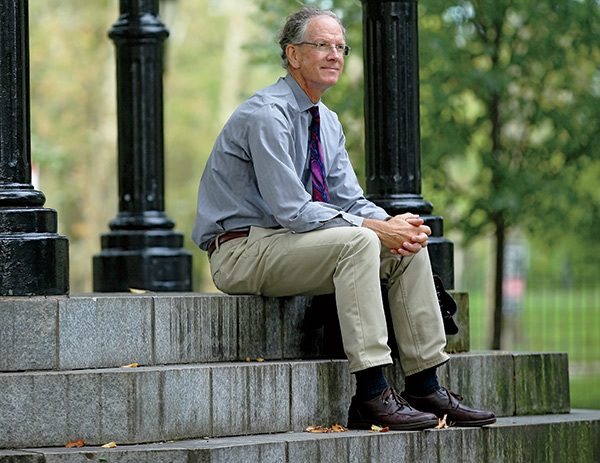
[ SHARED WISDOM ]No Faculty Member Is An Island
Philosophy, which originally meant “the love of wisdom,” urges listening before acting, says David Hansen, TC’s John L. & Sue Ann Weinberg Professor in Historical & Philosophical Foundations of Education. TC students are extraordinary listeners who are eager to learn — which makes them ideal collaborators for faculty, who rely on them as research colleagues who build on and carry forth paradigm-changing ideas into the world.
Take the fivefold U.S. increase since 1950 in celiac disease, a digestive disorder of the small intestine. Only strict avoidance of gluten, the main protein in wheat, barley and rye, prevents complications like osteoporosis and cancer. Little research has been conducted — and virtually none reflecting theories of behaviorally focused nutrition education — on motivating people to follow such a diet.
With a Provost’s grant, TC’s Program in Nutrition is partnering with Columbia University’s Celiac Disease Center to create and pilot-test behavioral strategies that promote adherence to a gluten-free diet and maximize quality of life.
I couldn’t possibly collect and analyze the hundreds of “dietary recalls” — daily accounts of food and beverage consumption — necessary to understand whether people with celiac disease are eating naturally gluten-free products or relying on gluten-free processed packaged snack foods. Fortunately, nutrition doctoral candidate Jennifer Cadenhead has things well in hand. Another doctoral student, Carrie Russo, is interviewing to learn how families with a diagnosed child navigate a gluten-free diet.
Celiac disease afflicts more people and has a higher mortality rate than better-known diseases like Crohn’s, yet celiac research receives less federal funding. Donors and smaller grants become even more important — and scholarships even more meaningful. — Randi Wolf, Associate Professor of Human Nutrition
Partners on Policy
I study environmental factors affecting families, youth and children, and design and evaluate intervention and policy programs. Students learn by doing, participating in all policy, research and practice activities at TC’s National Center for Children & Families and taking their learning in innovative directions.
Much of my focus is on understanding factors that help or hinder development in children experiencing difficult circumstances. Through an Affordable Care Act initiative, doctoral student Marisa Morin assesses the effectiveness of home visiting programs providing parenting and life-skill coaching. She has analyzed 5,000 tapes of parent-child interactions and adapted an observational measure of play to determine whether an intervention for fathers helps young children develop.
How to Support Students
PLEDGE TC will match, dollar-for-dollar, a select number of $50,000 gifts for new endowed scholarships
CONTRIBUTE to an existing tribute or program fund scholarship
SUPPORT a TC Fund Scholar or designate your TC gift to financial aid
CONTACT Linda Colquhoun at (212-678-3679) or visit www.tc.edu/future
Postdoctoral Fellow Claire Baker, funded by the Rauch Foundation, studies impacts of parents’ mental health on young children as they develop social, emotional and executive functioning skills. Claire evaluates whether financial assistance for low-income mothers increases positive parenting during the developmentally important early childhood years. She also examines whether and in what circumstances the Head Start program is effective. Her experience analyzing the large, nationally representative data sets required by policy-makers and funders is invaluable.
Young scholars like Marisa and Claire come to TC for our cutting-edge projects — but not if we can’t fund them. Ultimately, the nation’s poorest children stand to gain or lose. — Jeanne Brooks-Gunn, Virginia & Leonard Marx Professor of Child & Parent Development
These powerful testimonials beautifully illustrate the power of faculty-student collaboration. Yet our glass remains half empty. For every phenomenal student we fund, others remain unable to fulfill their potential.
Help us brighten that picture today by ensuring that the very best students can take advantage of an incredible Campaign that has transformed and elevated the College’s work. Our faculty and students know that it takes two to tango. Come join them in the dance.
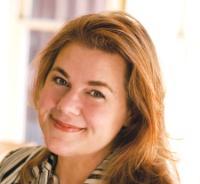

Suzanne M. Murphy (M.ED. ’99, M.A. ’96)
Vice President, Development & External Affairs
Download this article as a PDF
Published Monday, Dec 11, 2017